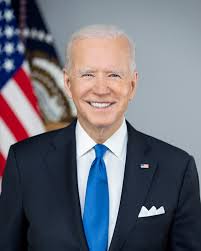“Explore the strained US-China relations as President Biden’s remark on President Xi Jinping and Secretary Blinken’s efforts unfold. Analysis & implications.”
The relationship between the United States and China has been complex and often tense in recent years. As two global superpowers with differing ideologies and geopolitical interests, their interactions have significant implications for the world. A recent statement by US President Joe Biden, where he referred to Chinese President Xi Jinping as a “dictator,” has further highlighted the strained nature of their relationship. This blog examines the context of Biden’s remark, explores the efforts made by Secretary of State Antony Blinken to ease tensions during his visit to Beijing, and analyzes the broader implications for US-China relations.
All in one trendz: Discover the national and international news

1. Biden’s Remark:
During a fundraiser in California, President Biden made a comment about President Xi Jinping in relation to a Chinese balloon that had strayed off course over the US in February. Biden claimed that Xi was embarrassed by the incident because he was unaware of the balloon’s presence. Biden’s choice of words, referring to Xi as a “dictator,” reflects the growing concerns within the US about China’s human rights record, its authoritarian governance, and its assertive foreign policy.
2. The Significance of Blinken’s Visit:
Secretary of State Antony Blinken’s two-day visit to Beijing marked the highest-level engagement between the US and China in five years. His trip aimed to address a range of contentious issues, including Taiwan, Ukraine, and the semiconductor chip industry. The fact that both Blinken and Xi agreed to maintain dialogue at senior levels demonstrates a recognition of the need to prevent further deterioration of the relationship. This visit provides a glimmer of hope for constructive engagement and finding common ground.
3. Taiwan, Ukraine, and the Semiconductor Industry:
What the Biden-Xi Meeting Means for U.S.-China Relations | Council on Foreign Relations (cfr.org)
During Blinken’s discussions with Chinese officials, Taiwan emerged as a key point of contention. The Chinese government reiterated its stance on the issue, emphasizing that there could be no compromise or concessions. The US has been vocal in its support for Taiwan’s security and democratic values, which has strained relations with China. Additionally, the ongoing conflict in Ukraine, with Russia’s invasion, was also discussed. Blinken reassured China that the US was not trying to stifle its economy with export bans on high-end semiconductors but rather seeking to protect its own interests.
4. Economic Difficulties and Rising Tensions:
Biden’s remark about China’s “real economic difficulties” highlights the economic challenges the country is currently facing. China’s economic growth has been slowing down, with issues such as debt, property market volatility, and the ongoing trade war with the US contributing to these challenges. As economic interests intertwine with political and security concerns, tensions between the US and China continue to rise.

5. Implications for US-China Relations:
The relationship between the US and China is of utmost importance for global stability and prosperity. Both countries are aware of the potential catastrophic consequences of an all-out conflict and the importance of maintaining open communication channels. Blinken’s visit and the agreement to stabilize the relationship indicate a recognition of the need to find areas of cooperation, despite the existing disagreements. However, challenges such as human rights concerns, economic competition, and geopolitical rivalries remain significant hurdles to overcome.
The recent remark by President Joe Biden calling Chinese President Xi Jinping a “dictator” reflects the deepening tensions between the United States and China. While the comment itself may be indicative of the US’s concerns about China’s authoritarian governance, it is essential to assess the broader context of the US-China relationship. Secretary of State Antony Blinken’s visit to Beijing signifies a commitment to maintain dialogue and prevent further deterioration of relations. The discussions on Taiwan, Ukraine, and the semiconductor industry highlight the complexities and challenges faced by both nations. As the world watches closely, the path to stable US-China relations requires a delicate balance
of cooperation, compromise, and careful navigation of their differences.
All in one trendz: Discover the national and international news


